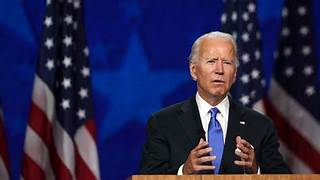Biden has faced significant criticism for his foreign policy missteps. In the Ukraine-Russia conflict, despite billions in aid to Ukraine, the country remains far from a decisive victory. Additionally, Biden has struggled to align Netanyahu with the U.S. policy and has been unable to control Hamas. Iran since the scrapping of JCPOA deal, have strengthened its efforts towards uranium enrichment. U.S. efforts to halt this have been thwarted by primarily by fours reasons; the failure of IAEA inspections; unable to block the black-market that is supplying Iran with nuclear resources, unable to halt knowledge and equipment transfer from Iran allies, and Biden also eased severe sanctions imposed upon Iran during the Trump administration.
Biden’s approach to control Iran’s nuclear program has faltered, with neither aggression nor appeasement yielding results as Tehran remains particularly hostile towards the U.S. The Middle East faces increasing instability, with Israel, an undeclared nuclear power, engaged in conflict with Hamas, which is backed by Iran—a nation on the verge of becoming a nuclear power itself. The prospect of nuclear hostility between Israel and Iran is growing.
These issues not only highlight Biden’s foreign policy failures but also signify a broader decline in U.S. foreign policy.
A recent International Atomic Energy Agency (IAEA) report has sparked renewed concerns about US foreign policy failure in curbing Iran’s nuclear program. The report revealed a significant increase in Iran’s enriched uranium stockpile, surpassing the limits established by the 2015 nuclear deal, which reignited fears about Iran’s nuclear intentions.
The IAEA report underscored a critical development: Iran’s enriched uranium stockpile has surged significantly in recent months. Since February, Iran’s stockpile has increased by 1,489.8 pounds, far exceeding the 661-pound limit established by the 2015 nuclear deal. Notably, Iran now possesses around 313.2 pounds of uranium enriched to 60%, which is close to weapons-grade levels. While precise figures are debated as IAEA is being barred from inspections after September 2023, the trend indicates that Iran’s nuclear program is nearing completion.
The international community remains deeply divided on how to address Iran’s nuclear activities. Countries like the United States and Israel view Iran’s program as a covert effort to develop nuclear weapons and have advocated for stringent sanctions to halt it entirely while maintaining their own arsenals. In contrast, nations like Russia and China argue that Iran’s nuclear endeavors are for peaceful purposes, such as electricity generation, and have opposed harsh measures.
Experts suggest that the shift in U.S. policy is a contributing factor. The Trump administration’s “maximum pressure” sanctions had a notably detrimental effect on Iran’s economy and its nuclear program. The Biden administration, however, took a more lenient approach, which aimed at reviving the 2015 nuclear deal after Trump’s withdrawal, even though Iran had lost interest in the JCPOA. This change inadvertently provided Iran with some breathing room. Biden’s policy shifted from maximum pressure to appeasement, including the release of $6 billion unfrozen assets for Iran. It was a misjudgment by Biden’s team to assume that Iran would utilize these funds solely for “humanitarian purposes.”
The newly found financial flexibility has reportedly allowed Iran to bolster its nuclear activities from which it supported militant groups in the region. These groups have been linked to attacks on US targets, Israel, and other critical infrastructure, further destabilizing an already volatile region. A drone strike perpetrated by Iranian-backed militants struck a U.S. military base in northeast Jordan, situated precariously close to the Syrian border resulted in the loss of three Americans and left at least 25 others wounded. The incident served as a stark reminder of the declining US power. Iran also launched a direct missile attack against Israel, marking its direct confrontation with Israel and its allies.
The international community, particularly European allies, is increasingly frustrated with the situation. They see the US approach lacking a clear strategy and potentially undermining efforts to curb Iran’s nuclear ambitions for its own election. Frustration is simmering as they perceive the US approach towards Iran’s nuclear program to be riddled with inconsistencies and is without a coherent long-term strategy. As Biden administration is prioritizing domestic politics over decisive action.
The future trajectory of Iran’s nuclear program remains uncertain. Continued inaction or wrong action could lead to further enrichment and a potential arms race in the Middle East. Biden has to realize that regional security needs to take precedence over personal politics, as a nuclear Iran will exacerbate tensions with undeclared nuclear power, Israel, in the region.
